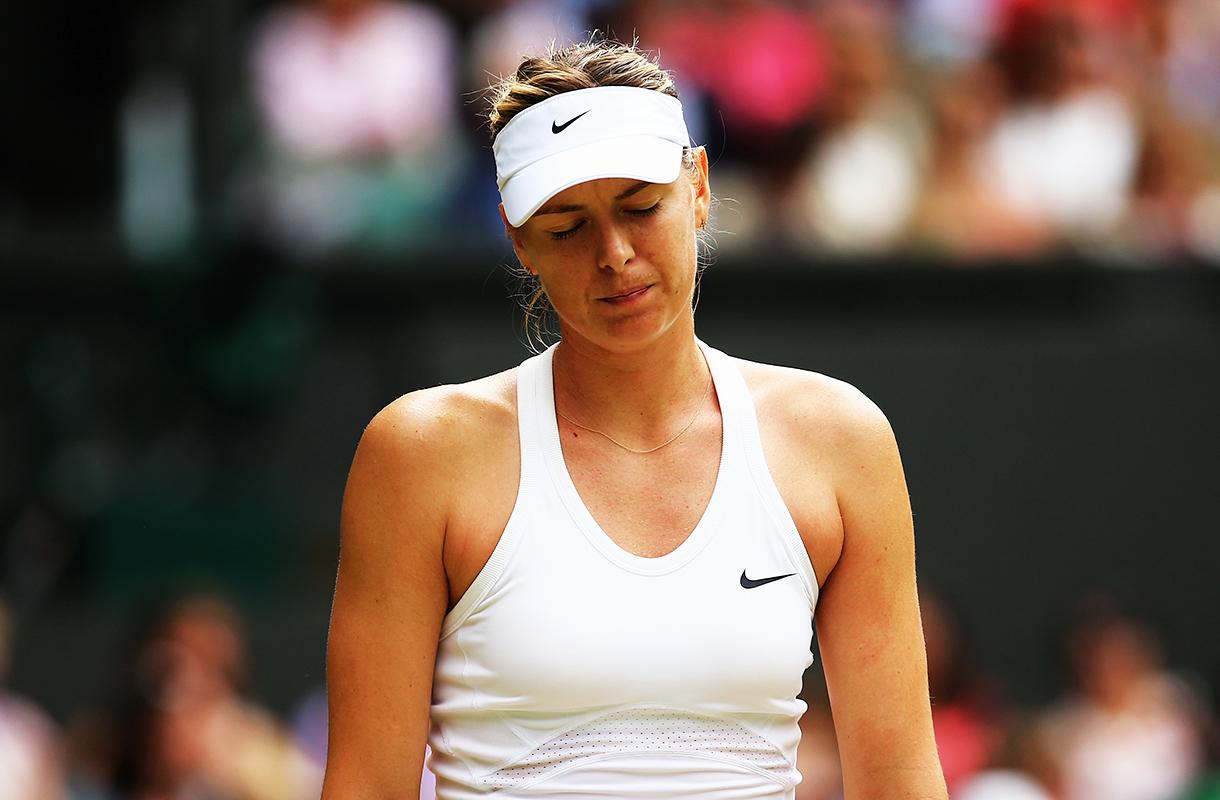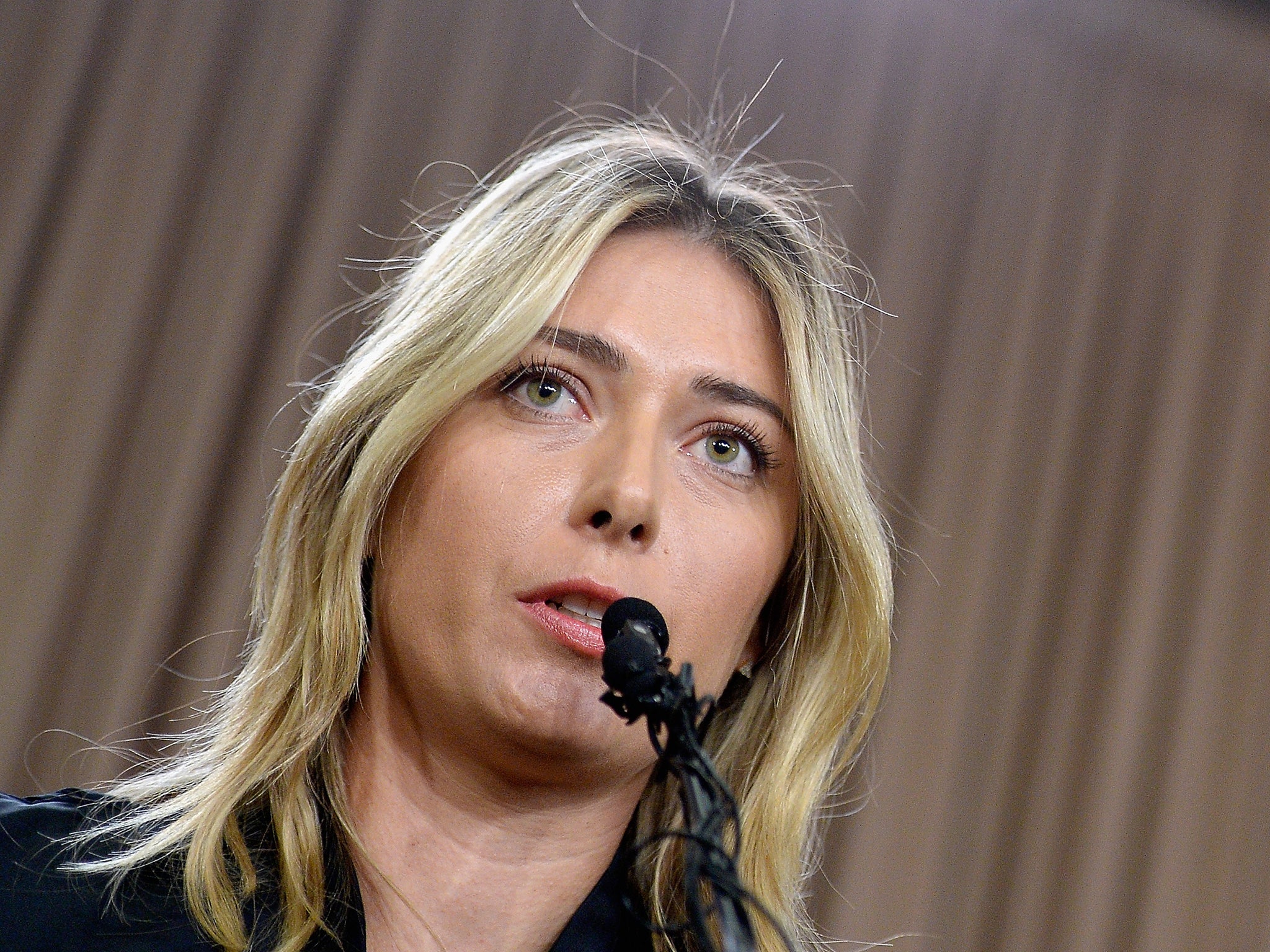Maria Sharapova's two-year doping ban reduced to 15 months on appeal
Sharapova tested positive for meldonium in January

Your support helps us to tell the story
From reproductive rights to climate change to Big Tech, The Independent is on the ground when the story is developing. Whether it's investigating the financials of Elon Musk's pro-Trump PAC or producing our latest documentary, 'The A Word', which shines a light on the American women fighting for reproductive rights, we know how important it is to parse out the facts from the messaging.
At such a critical moment in US history, we need reporters on the ground. Your donation allows us to keep sending journalists to speak to both sides of the story.
The Independent is trusted by Americans across the entire political spectrum. And unlike many other quality news outlets, we choose not to lock Americans out of our reporting and analysis with paywalls. We believe quality journalism should be available to everyone, paid for by those who can afford it.
Your support makes all the difference.Maria Sharapova has described having her two-year doping ban reduced to 15 months by the Court of Arbitration for Sport (CAS) as one of the ‘happiest’ days of her career.
The tribunal cut the ban because of her lack of warning from the World Anti-Doping Agency (WADA) as well as the prescription from a Russian doctor based on medical reasons, rather than performance-enhancing, and the fact that she had used the drug for the past 10 years without any anti-doping violations.
Despite not agreeing with a number of the International Tennis Federation’s (ITF) conclusions, they did however insist Sharapova retains most of the responsibility for the failed test.
Sharapova said: “I’ve gone from one of the toughest days of my career last March when I learned about my suspension to now, one of my happiest days, as I found out I can return to tennis in April.
“In so many ways, I feel like something I love was taken away from me and it will feel really good to have it back. Tennis is my passion and I have missed it. I am counting the days until I can return to the court.
“I have learned from this, and I hope the ITF has as well.”
Sharapova tested positive for meldonium in January of this year and subsequently handed a two-year ban from tennis, causing her to miss the Olympics, after an ITF tribunal ruled “she is the sole author of her own misfortune”.

In a statement, the ITF said: “Taking all of these circumstances into account, the CAS panel determined that, although Ms. Sharapova was at fault, her plea of No Significant Fault or Negligence should be upheld, triggering a discretion to reduce the otherwise applicable two year sanction by up to 50 per cent.
“Based on its analysis of Ms. Sharapova's degree of fault, the CAS panel decided that the sanction should be reduced in this case to 15 months.”

The appeal over her suspension was on the basis of the debate around the drug, which is a popular medication in Russia. There are arguments over how long it takes to leave the athlete’s system and whether athletes received ample warning time ahead of it being added to WADA’s banned list in January.
The five-time Grand Slam winner’s lawyer John Haggerty suggested at the time of the ban that Sharapova had received an “unfairly harsh suspension because she is such a famous athlete and they wanted to make an example out of her”.
It is not the first time CAS has reduced the suspension imposed by the ITF after reducing Marin Cilic’s nine-month ban to four and Viktor Toicki’s 18 month ban to 12 in the past.
Join our commenting forum
Join thought-provoking conversations, follow other Independent readers and see their replies
Comments